What is animal welfare and why is it important?
We are an animal welfare organisation but what does that mean and why is the welfare of animals important?
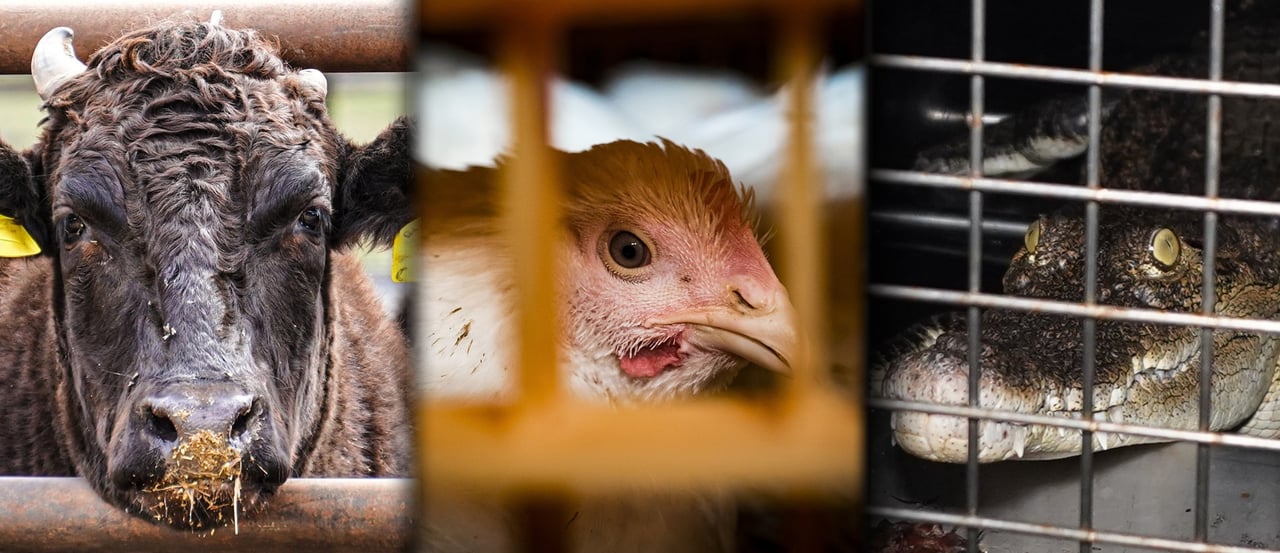
Banner image credit: Animal Kind and Farm Transparency Project
Right now, animal welfare laws in Australia are a patchwork of failing state and federal legislation and codes that clearly prioritise industry profit over animal welfare.
From crocodiles who are forced to languish in small barren cages only to be skinned for designer handbags, to calves castrated and de-horned without pain relief – Aussie animals need YOU to be their voice now more than ever.
Please urgently send the local MPs for your electorate a strong and clear message calling for stronger protections for animals in Australia.
To ensure Aussie animals are properly protected, we need:
By calling for stronger animal welfare laws, you’re showing the next Federal Government that it’s not acceptable to treat animals as commodities. You’re advocating for them to be recognised as sentient living beings who feel pain and pleasure and who deserve protection.
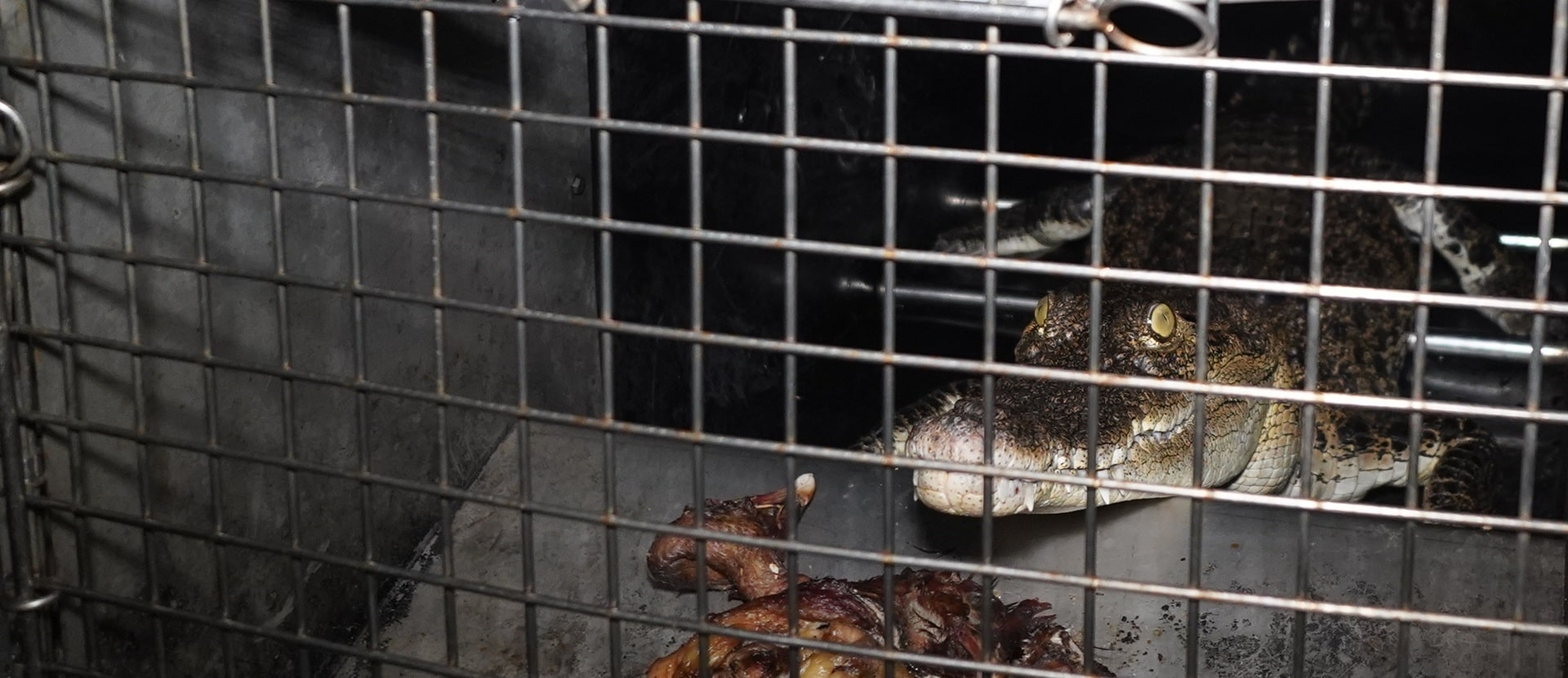
Banner image: Hidden crocodile farm at Crocodylus Park & Zoo. Credit: Farm Transparency Project
In their natural ocean home, a dolphin would have hundreds of square kilometres to roam freely. But currently, in Australian venues, dolphins are kept in barren, shallow, chlorinated pools where they only have a fraction of that space.
In 2021, New South Wales passed a ban on breeding dolphins in captivity or importing them into the state, however this protection for dolphins has not been replicated in Queensland where all of Australia’s remaining captive dolphins live.
Crocodiles farmed for their skin are kept in barren enclosures until being moved to small concrete pens where they are barely able to move for the last months of their life. This is designed to keep their skin ‘blemish free’ for luxury handbags.
The current ‘Code of Practice’ that sets the standard for how crocodiles are farmed in Australia is industry-led and grossly out of date with current welfare guidelines and science. A mandated review didn’t happen for nearly a decade, until Australians raised their voices and demand it happen.
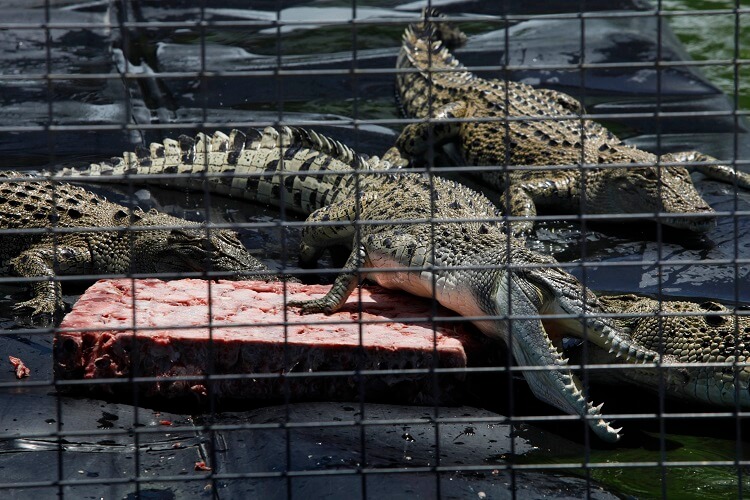
Hens crammed in battery cages have less space than an A4 piece of paper, and therefore are unable to scratch, stretch, flap their wings or move around freely.
Even though each state government finally agreed to phase-out battery cages, they have been dragging their heels with many refusing to announce legally binding phase out dates, including NSW which has the most battery caged hens compared to any other state.
Cows are increasingly intensely confined in dirty, cramped yards called ‘feedlots’ as the final step in beef production. They are unable to express their natural foraging behaviours and often become sick or die due to the unnatural environment.
There are roughly 400 feedlots in Australia, and they are growing in number and size. Currently they are not legally required to provide shade protection, bedding or enrichment to these thinking, feeling beings.
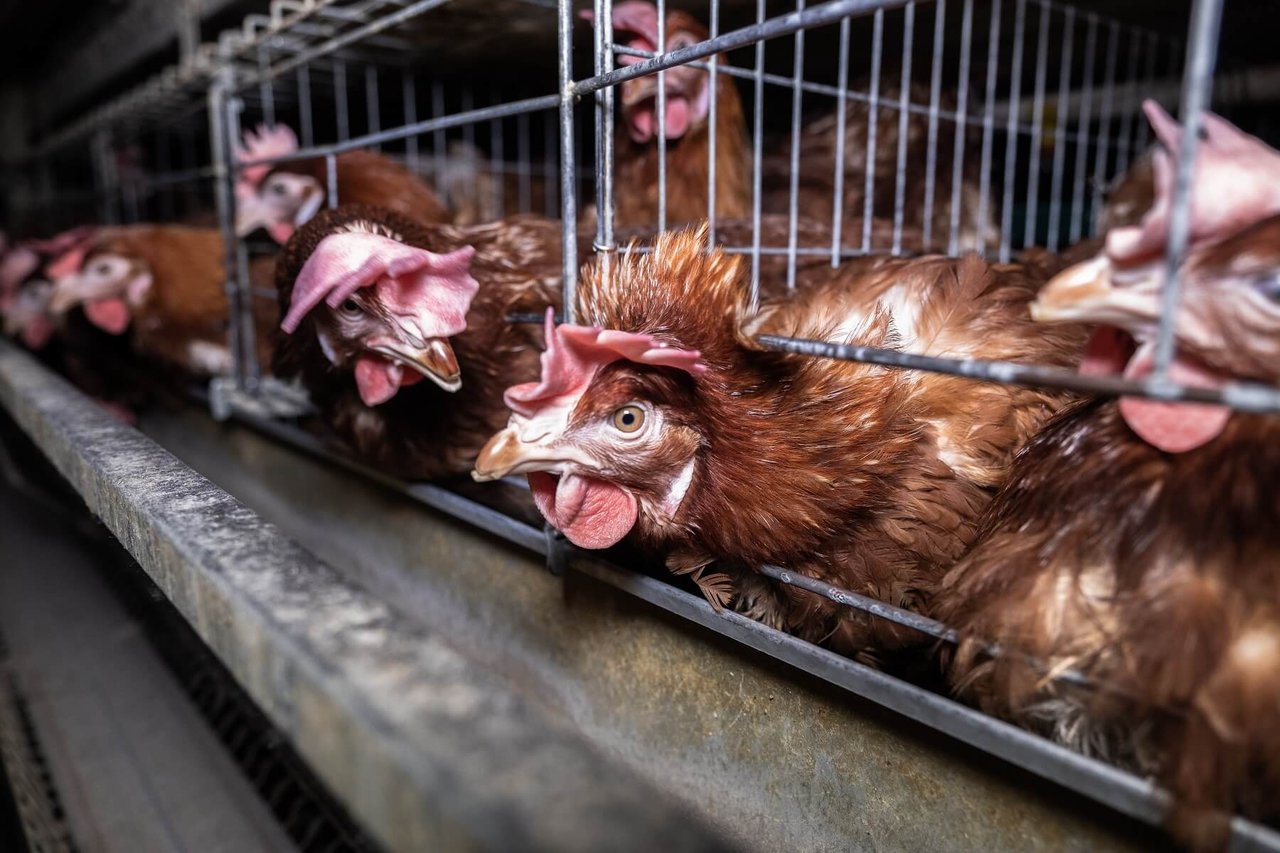
More than 700 million chickens are raised for meat every year in Australia, with most bred to reach slaughter weight in just five to six weeks. Adding to their misery, these birds grow so quickly that they suffer debilitating health conditions and struggle to perform their natural behaviours.
Right now, no state or federal law mandates the use of slow growing chickens as a solution to this animal welfare catastrophe, which means chickens bred for meat continue to suffer.
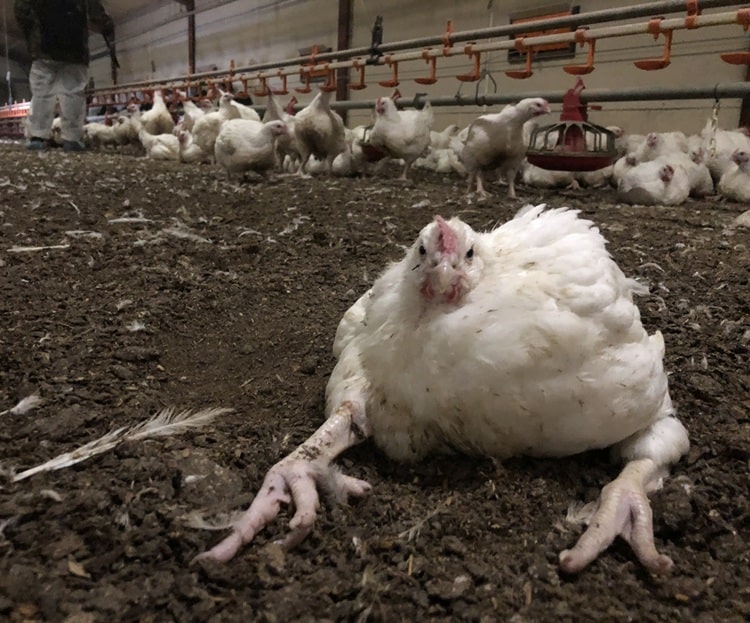
Many kangaroos killed for commercial purposes suffer prolonged deaths from inaccurate shots and their joeys have their heads bashed in. The cruel methods used to kill these iconic Aussie animals are completely legal and largely unchecked. This cruelty is fuelled by the demand for kangaroo skin which is then exported around the world for fashion.
Baby cows can have their horns carved out of their skills with zero requirement for pain relief, because outdated animal welfare laws allow for this cruelty to go on.
The industry also continues the painful practice of hot iron branding on cows and causing them unnecessary suffering, despite the availability of humane alternatives.
Lambs have skin sliced from their bottoms or tails with no pain relief in a practice known as live lamb cutting, or ‘mulesing’, where a large section of the lambs’ hindquarters is removed to prevent blow flies from burrowing into the folds of their skin.
Right now, no state or federal law mandates the use of ‘smooth-bodied’ sheep breeds that would remove the need for this practice. Moreover, current laws don’t mandate pain relief for live lamb cutting, causing immense suffering to the animals.
By acting now, YOU can make sure Australia’s animal welfare laws recognise animals as sentient beings, not commodities.
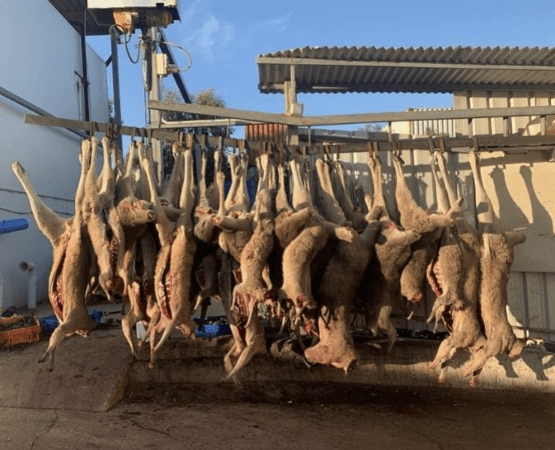
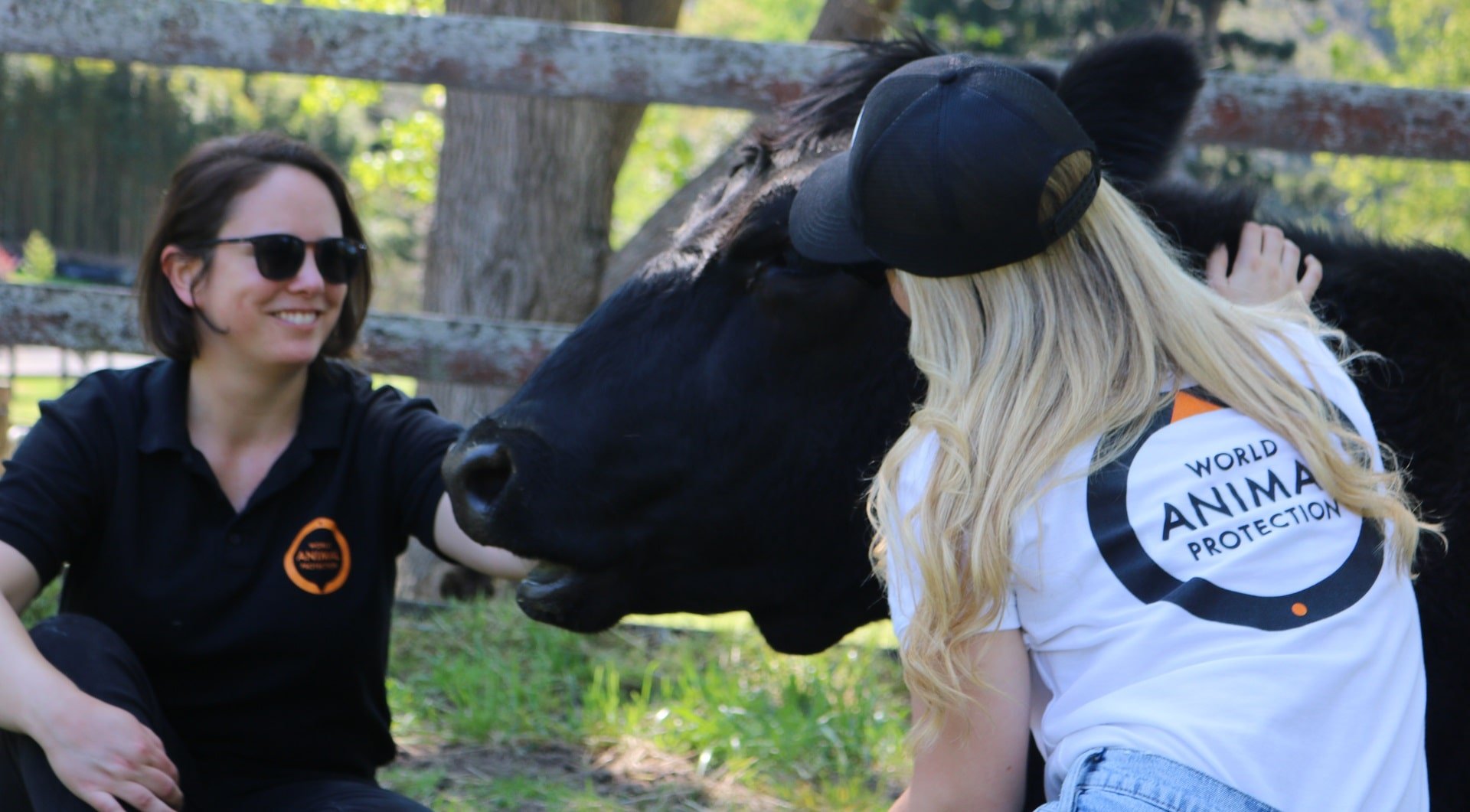
Together, we can put an end to the legalised forms of animal cruelty in Australia by introducing stronger laws that give every animal a life worth living.
We are an animal welfare organisation but what does that mean and why is the welfare of animals important?
Your support is key to bringing an end to animal suffering across the world.